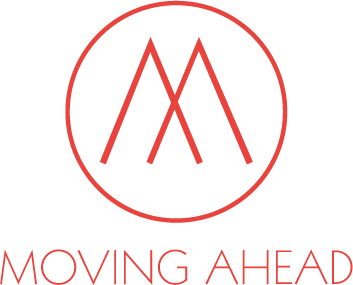Athletes know their time in sport will naturally be limited – by health, wealth, and selection battles, but the end date is not always predictable. It’s essential to have a Plan B brewing while you are still deeply committed to your sport.
The second year of Moving Ahead’s Athlete-to-Business mentoring scheme kicks off tomorrow, Tuesday 28th November, with an event at the London Stock Exchange Group. More than 70 athletes with a combined total of 22 Olympic and Paralympic Gold Medals, 18 Silver and Bronze Olympic and Paralympic medals, 40 World Championship Gold medals, one World Hour Record and from 24 different sports including cycling, swimming, rowing, hockey and athletics will take part in the scheme and will be matched with corporate leaders from businesses including the London Stock Exchange Group, Ricoh UK, Allianz, Santander, Deloitte and Pcubed. Six of these mentors are former elite athletes. They will be guided through the programme by development experts at Moving Ahead.
Here Monica Relph, former GB rower and development expert at Moving Ahead shares her top tips for creating your Plan B.
She said: “My top tips for current and retired athletes are :-
1. Always say ‘yes!’ to a cup of coffee. Meet as many people as you can from outside your world and broaden your horizons.
2. Be curious. Put your pride to one side and keep asking questions.
3. By planning for what’s next, you could be in your sport for longer. It allows you to plan financially and emotionally – that stability will help you focus.
4. You don’t have to continue working in your sport when you retire. There is a whole world of other opportunities out there and you will find your skills are not only transferable but highly valued. Only 3% of ballet dancers say they want to teach post retirement, but 53% end up teaching in some capacity.[1].
5. Seek out a mentor from outside your world. Mentors will be excited to help an elite athlete. They act as your champion, your cheerleader. They challenge your thinking from a totally different perspective. They aren’t there to offer you a job, but they can offer you a roadmap to your future.”
Finally, Monica says that when you have lined up your mentor, don’t let the golden opportunity go to waste. “Stick to your mentoring meeting schedule and be tenacious. Never let being away on training camp or your mentor’s busy diary get in the way of your meetings – meeting online or over the phone can be just as productive.”
So how else do mentors help? Lizzie Simmonds is an Olympic swimmer who has been mentored by a top tier executive through Moving Ahead’s Athlete-to-Business mentoring scheme. She writes: “My mentor helps me to consolidate my jumbled thoughts, extricate which were useful and proactive, and discard the ones that were just emotional uncertainties.
“We talk a lot about transferable skills and how the habits that help athletes succeed at an elite level can be applied to corporate situations. Think of skills such as mental resilience, application to daily goals, motivation, team work and leadership. All traits that you, as an elite athlete, will find it easy to excel at, and all traits that would make you incredibly valuable to a company.”
The Moving Ahead A2B programme, managed in collaboration with the English Institute of Sport Performance Lifestyle Team, leverages Moving Ahead’s specialism in mentoring and the detailed knowledge and expertise of the Performance Lifestyle Advisors. It gives athletes an opportunity to plan for their futures whether they are planning on competing at Tokyo 2020 or have already transitioned into work.
To be a mentor or mentee in future rounds of the Athlete-to-Business programme, or in our Sport to Business programme which matches corporate mentors with leaders working in sports governance, contact Monica@moving-ahead.org.

